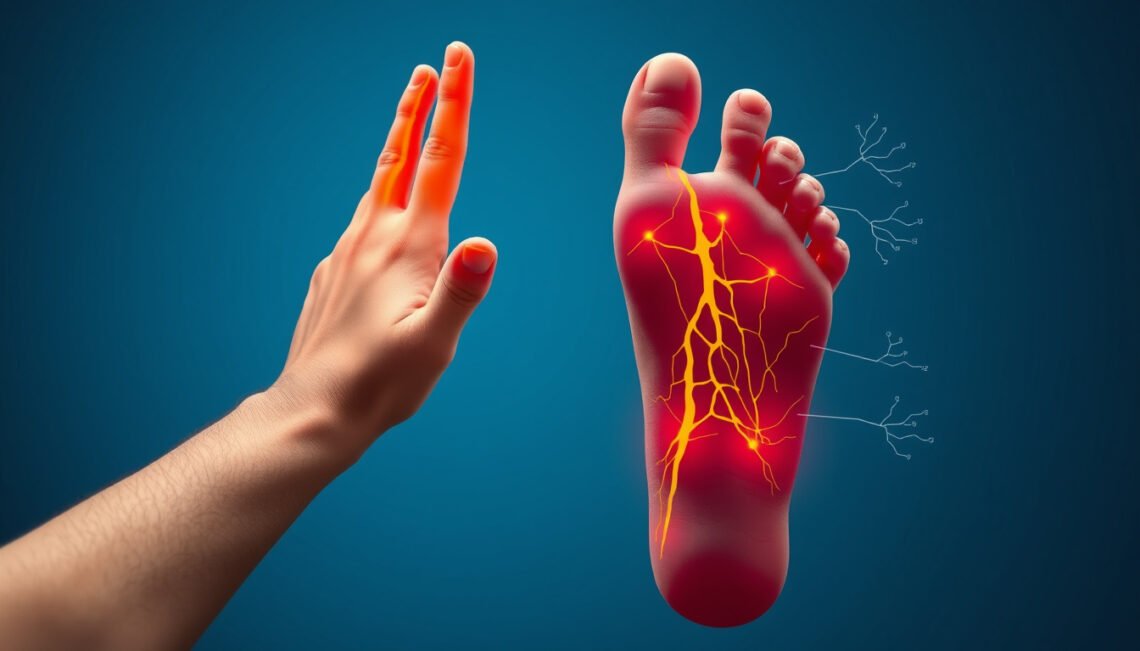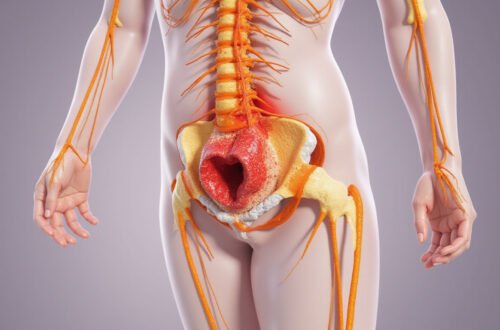Numbness is a common sensation that many people experience at some point in their lives. It can manifest as a tingling, prickling, or loss of sensation in different parts of the body. While often temporary and harmless, persistent or severe numbness can indicate underlying health issues that require attention. In this article, we’ll explore the causes of numbness in the body, potential remedies to alleviate it, and when to seek medical help.
What Is Numbness?
Numbness refers to a loss of sensation or feeling in a part of the body. It occurs when nerves that transmit sensory information from the body to the brain are damaged, irritated, or compressed. The sensation can be described as "pins and needles," tingling, or a complete lack of feeling. Numbness can affect any area—including the arms, legs, hands, feet, face, or torso—and can be temporary or chronic.
Understanding the root causes of numbness is crucial to managing or treating it effectively. The sensation itself is often a symptom rather than a condition, indicating an underlying issue that needs addressing.
Common Causes of Numbness
Numbness can result from various physical and neurological conditions. Here are some of the most common causes:
1. Nerve Compression or Pinched Nerve
One of the most frequent causes of numbness is nerve compression. This occurs when surrounding tissues—such as bones, muscles, or ligaments—press on nerves. For example, a herniated disc pressing on a spinal nerve can cause numbness in the legs or arms.
2. Peripheral Neuropathy
Peripheral neuropathy involves damage to the peripheral nerves outside the brain and spinal cord. It can be caused by diabetes, alcoholism, infections, or exposure to toxins. Symptoms include numbness, tingling, and weakness, primarily in the extremities.
3. Poor Circulation
Reduced blood flow to a part of the body can cause numbness. Conditions like peripheral artery disease or sitting in an awkward position for too long can temporarily impair circulation, leading to numbness in the limbs.
4. Vitamin Deficiencies
Deficiencies in vitamins such as B12, B6, and E can lead to nerve damage and numbness. B12 deficiency, in particular, is linked to neurological problems and is often associated with anemia.
5. Multiple Sclerosis (MS)
MS is a chronic autoimmune disease that affects the central nervous system. It damages the protective covering of nerves (myelin), causing symptoms like numbness, weakness, and visual problems.
6. Stroke or Transient Ischemic Attack (TIA)
A sudden loss of blood flow to the brain can cause numbness, weakness, and speech difficulties. Immediate medical attention is critical in these circumstances.
7. Infections and Inflammatory Conditions
Infections such as Lyme disease or conditions like Guillain-Barré syndrome can cause nerve inflammation and numbness.
8. Anxiety and Stress
High levels of stress and anxiety can sometimes cause sensations of numbness, particularly in the extremities. This is often related to hyperventilation.
9. Medications and Toxins
Certain medications, such as chemotherapy drugs, and exposure to toxins can damage nerves, resulting in numbness.
Remedies and Treatments for Numbness
The appropriate remedy for numbness depends on its cause. Here are some common approaches:
1. Address the Underlying Cause
- For nerve compression: Physical therapy, medication, or surgery may be necessary.
- For vitamin deficiencies: Supplementation and dietary changes can restore nutrient levels.
- For diabetic neuropathy: Managing blood sugar levels is essential.
2. Lifestyle Changes
- Maintain a balanced diet rich in essential vitamins and minerals.
- Engage in regular exercise to improve circulation.
- Avoid prolonged sitting or maintaining awkward positions.
- Manage stress through mindfulness and relaxation techniques.
3. Medical Interventions
- Medications: Pain relievers, anti-inflammatory drugs, or medications targeting nerve pain.
- Physical therapy: To improve nerve function and relieve compression.
- Surgical procedures: In cases of herniated discs or nerve impingements.
4. Alternative and Complementary Therapies
- Acupuncture has shown benefits in relieving nerve-related numbness.
- Massage therapy can improve circulation and reduce nerve tension.
5. When to Seek Medical Help
Persistent, worsening, or sudden numbness warrants immediate medical evaluation to rule out serious conditions like stroke or multiple sclerosis. Early diagnosis and treatment can prevent complications.
Preventing Numbness
While not all causes of numbness are preventable, adopting healthy habits can reduce risk:
- Maintain good posture.
- Control underlying health conditions like diabetes.
- Ensure adequate intake of vitamins and nutrients.
- Regularly engage in physical activity.
- Avoid excessive alcohol consumption and toxin exposure.
Frequently Asked Questions (FAQs)
Q1: What are the main causes of numbness in the body?
A1: The main causes include nerve compression, peripheral neuropathy, poor circulation, vitamin deficiencies, autoimmune diseases like multiple sclerosis, stroke, infections, anxiety, medications, and toxins.
Q2: How can I relieve numbness caused by poor circulation?
A2: Elevate affected limbs, move around regularly, avoid crossing legs for long periods, and adopt a healthy lifestyle to improve circulation.
Q3: When should I see a doctor for numbness?
A3: You should seek medical attention if numbness is sudden, persistent, worsening, accompanied by weakness, difficulty speaking, loss of coordination, or if it occurs after a head injury.
Conclusion
Understanding the causes and remedies for numbness in the body is vital for maintaining good health and preventing serious complications. While many cases of numbness are temporary and manageable through lifestyle adjustments, persistent or sudden symptoms require prompt medical evaluation. Proper diagnosis and targeted treatment can significantly improve quality of life and prevent long-term nerve damage.

If you experience ongoing numbness or concerning symptoms, don’t hesitate to consult healthcare professionals. Taking proactive steps ensures that underlying issues are addressed early, paving the way for effective relief and better health outcomes.
Take charge of your health today—seek advice, stay informed, and manage numbness before it becomes a serious concern.






